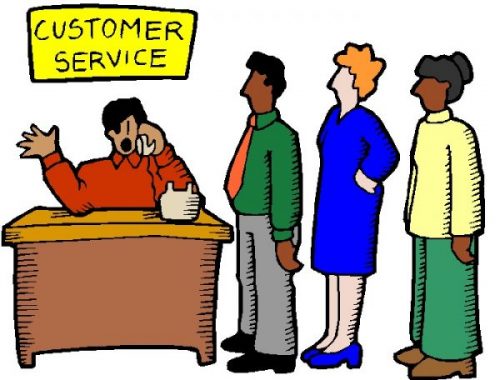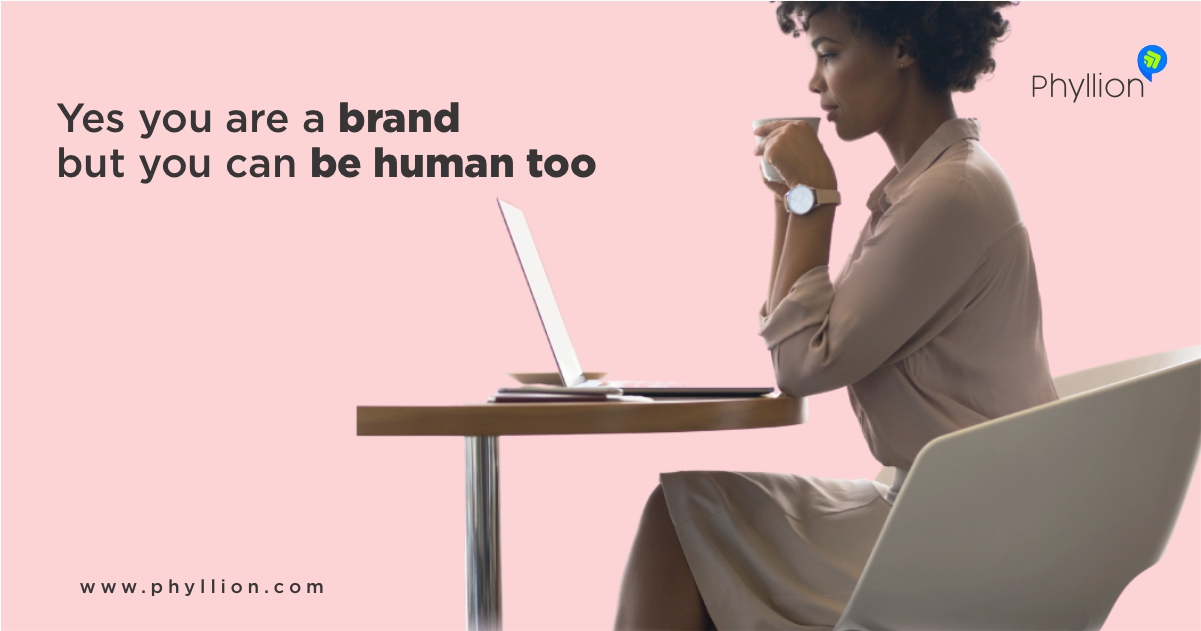On a scale of 1-10, how human are you? Ever asked yourself this question. Where…

Are “Nice Customers” Ruining Your Business?
Book Review: “How to win customers and keep them for life” – Michael LeBoeuf, Ph.D.
I’M a nice customer. You all know me. I’m the one who never complains, no matter the kind of service I get.
I’ll go into a restaurant and sit quietly while the waiters and waitresses gossip, and never bother to ask if anyone has taken my order. Sometimes, a party that came in after I did gets their order, but I don’t complain. I just wait.
And when I go to a store to buy something, I don’t throw my weight around. I try to be thoughtful of the other person. If a snooty salesperson gets upset because I want to look at several things before making up my mind, I’m just as polite as can be. I don’t believe rudeness in return is the answer.
The other day I stopped at a full service gas station and waited for almost five minutes before the attendant took care of me. And when he did, he spilled gas and wiped the wind-shield with an oily rag. But did I complain about the service? Of course not.
I never kick. I never nag. I never criticize. And I wouldn’t dream of making a scene, as I’ve seen some people do in public places. I think that’s uncalled for. No, I’m a nice customer. And I’ll tell you who else I am.
I’m the customer who never comes back!
When I get pushed too far, I just take my business down the street to places where they’re smart enough to hire and train people who appreciate nice customers. And the world is full of nice customers, just like me, who can put anyone out of business.
I laugh when I see you frantically spending your money on expensive advertising to get me back, when you could have kept me with a few kind words, a smile, and some good service.
I’m your customer who never comes back.
– Author unknown (but nice)
The Greatest Customer You’ll Ever Win
The famous New York diamond dealer Harry Winston heard about a wealthy Dutch merchant who was looking for a certain type of diamond to add to his collection.
Winston called the merchant, told him that he thought he had the perfect stone, and invited the collector to come to New York to examine it.
The collector flew to New York and Winston assigned a salesman to meet him and show the diamond. When the salesman presented the diamond to the merchant, he described the expensive stone by pointing out all of its fine technical features. The merchant listened and praised the stone, but turned away and said, “It’s a wonderful stone but not exactly what I want.”
Winston, who had been watching the presentation from a distance, stopped the merchant going out the door and asked, “Do you mind if I show you the diamond once more?” The merchant agreed and Winston presented the stone. But instead of talking about the technical features of the stone, Winston spoke spontaneously about his own genuine admiration of the diamond, and what a rare thing of beauty it was. Abruptly, the customer changed his mind and bought the diamond.
While he was waiting for the diamond to be packaged and brought to him, the merchant turned to Winston and asked “Why did I buy it from you when I had no difficulty saying no to your salesman?”
Winston replied, “The salesman is one of the best men in the business and he knows more about diamonds than I do. I pay him good salary for what he knows. But I would gladly pay him twice as much if I could put into him something that I have and he lacks. You see, he knows the diamonds, but I love them.”
That story illustrates one of the single greatest principles of persuasion: People are far more persuaded by the depth of your beliefs and emotions than any amount of logic or knowledge you possess.
There is absolutely no substitute for an honest, unshakable, enthusiastic belief that the products and services your business offers are the best available anywhere. Couple this with a sincere passion for helping people, and you have an unbeatable combination for creating and keeping customers. And that’s why: The greatest customer you’ll ever win is you!
To put it another way, the greatest sale you will ever make is made the day that you buy your own product. Being totally sold on the value of what you have to offer automatically makes you a super salesperson.
Something to chew on: If you needed the same service your business is offering today, can you use your own service?
The Only Two Things People Ever Buy
Have you ever asked yourself, “What are our customers really buying when they do business with us?” While it may seem like a dumb question at first, it is definitely one of the most important questions that every employee from the chairman of the board to the front desk staff needs to know the answer to.
And the answer is not as obvious as you may think. You see, customers don’t buy what your company sells. Instead, they buy what those goods and services do for them. To illustrate, consider the following plea from an anonymous customer:
“Don’t sell me clothes. Sell me a sharp appearance, style and attractiveness.
Don’t sell me insurance, Sell me peace of mind and a great future for my family and me.
Don’t sell me a house. Sell me comfort, contentment, a good investment, and pride of ownership.
Don’t sell me books. Sell me pleasant hours and the profits of knowledge.
Don’t sell me toys. Sell my children happy moments.
Don’t sell me a computer. Sell me the pleasures and profits of the miracles of modern technology.
Don’t sell me airline tickets. Sell me a fast, safe, on-time arrival at my destination feeling like a million dollars.
Don’t sell me things. Sell me ideals, feelings, self-respect, home life, and happiness.
Please don’t sell me things. Sell me good feelings, and solutions to my problems.”
Despite all of the untold millions of products and services for sale in today’s marketplace, customers will exchange their hard-earned money for only two things:
- Good feelings
- Solutions to problems
The business world today is undergoing a major revolution in the way customers shop, buy, and decide to come back or take their business elsewhere. In the 1980’s, companies began to realize that the balance of power was shifting from sellers to buyers.
The customer’s message then was “Give me what I want, how I want it, or I’ll buy from someone who will.”
Today, that message has been expanded and amplified to “Give me what I want, how I want it, when I want it, at the lowest possible price, and make me feel special about it, or I’ll buy from someone who will.” Why are customers making such demands? Because they can. Today’s customer is better educated and better informed, and has more choices than ever.
Something to chew on: Is your business providing real solutions to customers’ problems?
Does your response rate to clients’ requests, delivery time, level of professionalism, customer service; make clients feel good about doing business with your organization?
To Keep Customers for Life, Ask these Platinum Questions
A young boy entered a drugstore phone booth and the druggist overhead the following conversation:
“Hello, is this the Smith residence…? I would like to apply as a gardener with your residence…
What’s that, you already have a gardener…? Is he a good gardener? Are you perfectly satisfied with all of his work…? Is he doing everything that you would like to have done?
Do you plan on keeping him? I see… Well, I’m glad you’re getting such excellent service. Thanks anyway. Bye.”
As he left the booth, the druggist remarked, “Johnny, I couldn’t help overhearing your conversation. I know it’s none of my business, but aren’t you the Smith’s gardener?
To which Johnny replied, “That’s right. I just called to find out how I’m doing.” At a very early age, Johnny has learned that the key to keeping customers is to regularly check up on what they like and dislike about his work.
No matter what business you’re in, you can’t improve on the rewards you offer your customers until you know what they like and dislike about the job you’re doing now. And you get the precise knowledge by asking them the platinum questions:
How are we doing?
How can we get better?
Finding the answers to these two questions, tells you:
- The customer’s perception of your quality of service
- What to do in order to increase that perception.
The big deals aren’t so much in winning customers, as they are in keeping customers. And you keep customers by providing better service than your competitors, as your customer perceives it.
Something to chew on: How are your customers perceiving your business?
Do you have metrics for receiving customers’ feedback about your organization’s services?
Knowing how to win and keep customers is the single most important business skill that any business should learn. Master this one skill, and there are literally thousands of deals that can make you wealthy!




This Post Has 0 Comments